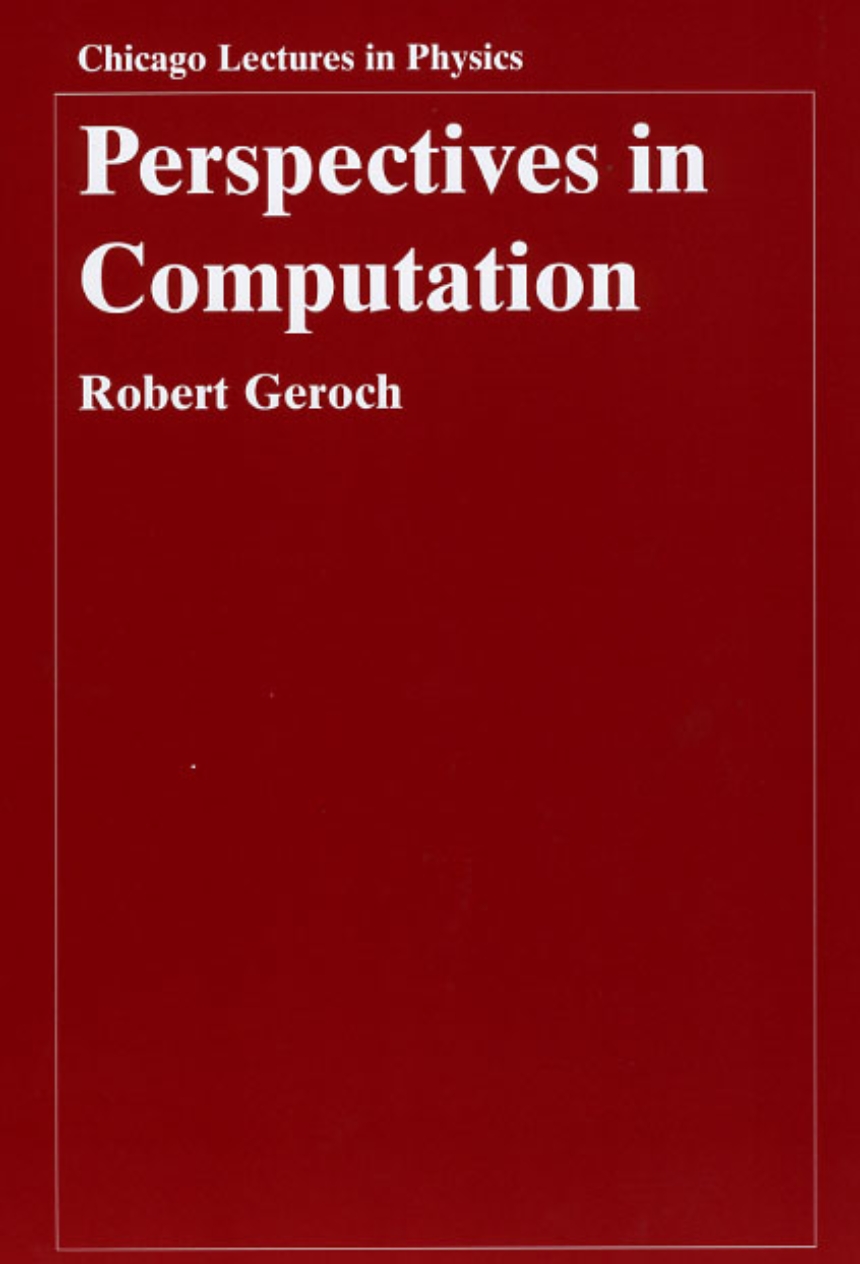Perspectives in Computation
Computation is the process of applying a procedure or algorithm to the solution of a mathematical problem. Mathematicians and physicists have been occupied for many decades pondering which problems can be solved by which procedures, and, for those that can be solved, how this can most efficiently be done. In recent years, quantum mechanics has augmented our understanding of the process of computation and of its limitations.
Perspectives in Computation covers three broad topics: the computation process and its limitations, the search for computational efficiency, and the role of quantum mechanics in computation. The emphasis is theoretical; Robert Geroch asks what can be done, and what, in principle, are the limitations on what can be done? Geroch guides readers through these topics by combining general discussions of broader issues with precise mathematical formulations—as well as through examples of how computation works.
Requiring little technical knowledge of mathematics or physics, Perspectives in Computation will serve both advanced undergraduates and graduate students in mathematics and physics, as well as other scientists working in adjacent fields.
Reviews
Table of Contents
1 Introduction
2 Characters and Strings
3 Problems
4 Computability
5 Turing Machines
6 Noncomputable Problems
7 Noncomputable Numbers
8 Formal Mathematics
9 Difficulty Functions
10 Difficult Problems; Best Algorithms
11 A Language for Efficiency
12 Are There Better Languages?
13 Probabilistic Computing
14 Quantum Mechanics
15 Grover Construction
16 Grover Construction: Six Issues
16.1 Initial State
16.2 Final Observation on Hin
16.3 Building the Operator W
16.4 Building the Operator V
16.5 Errors
16.6 What Is the Problem?
17 Quantum-Assisted Computing
18 Quantum-Assisted Computability
19 Quantum-Assisted Difficulty Functions
20 Quantum-Assisted Efficiency I
21 Quantum-Assisted Efficiency II
22 Conclusion
References
Index
